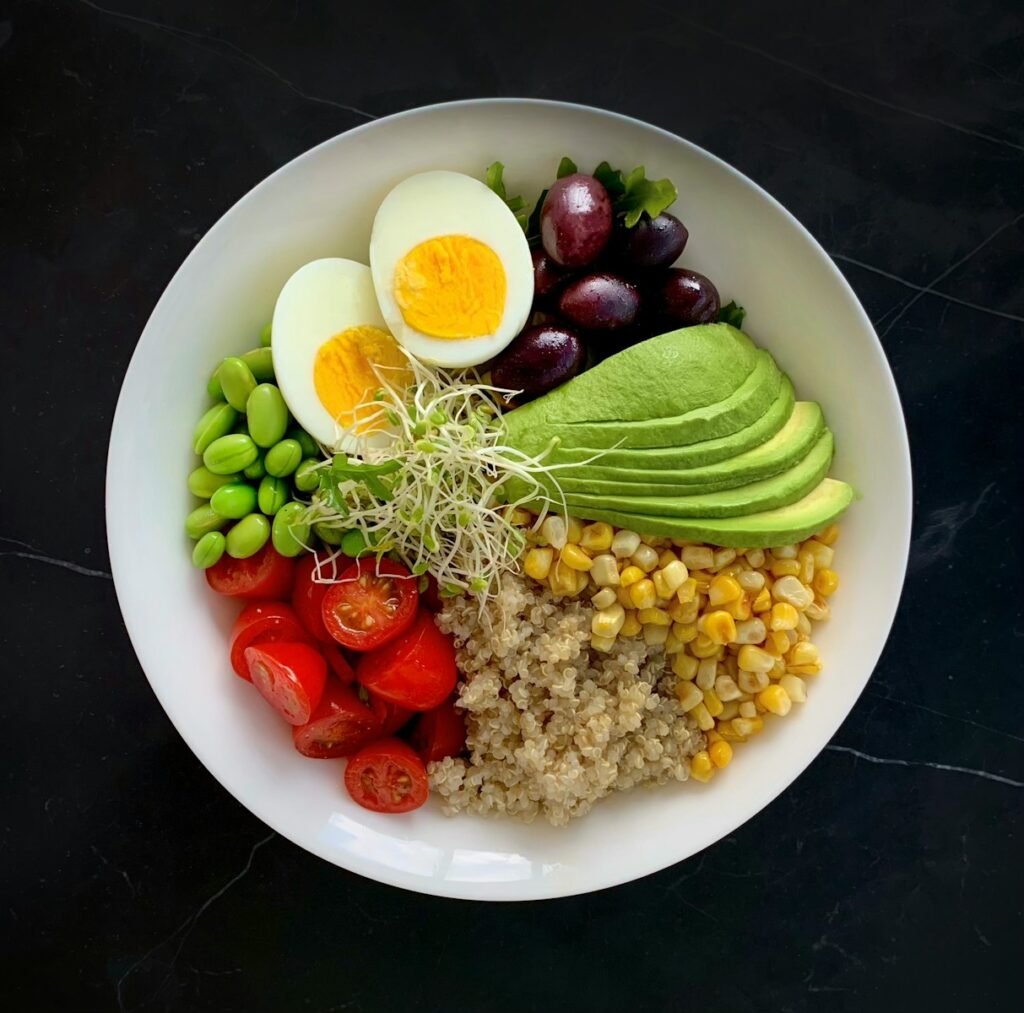Table of Contents
- Introduction
- Animal Sources of Protein
- Plant-Based Protein Powerhouses
- The Importance of Protein
- Additional Resources and Further Reading
- Practical Tips and Actionable Advice
- Conclusion
Introduction
Protein is an essential macronutrient that plays a crucial role in virtually every aspect of our health and well-being. From building and repairing tissues to regulating crucial bodily functions, protein is truly the building block of life. In today’s fast-paced world, where we constantly strive for optimal performance and vitality, understanding the best sources of protein is paramount.
Whether you’re an athlete seeking to build lean muscle mass, a busy professional trying to stay energized throughout the day, or simply someone aiming to maintain a healthy lifestyle, the right protein sources can make a world of difference. With a wide variety of options available, both from animal and plant-based sources, it’s essential to understand their unique benefits and how to incorporate them into your diet effectively.
Animal Sources of Protein
Animal-based proteins have long been celebrated for their rich nutrient profiles and complete amino acid compositions. These sources offer a wide range of options, catering to various dietary preferences and cultural traditions.
Meat and Poultry
Lean cuts of meat and poultry, such as chicken breast, turkey, and lean beef, are excellent sources of high-quality protein. These options are not only rich in essential amino acids but also provide valuable nutrients like iron, zinc, and vitamin B12.
| Protein Source | Protein Content (per 100g) |
|---|---|
| Chicken Breast | 31g |
| Lean Ground Turkey | 28g |
| Lean Beef Sirloin | 26g |
Fish and Seafood
Fish and seafood are not only rich in high-quality protein but also offer a wide range of heart-healthy omega-3 fatty acids. Options like salmon, tuna, and shrimp are particularly nutritious choices that can contribute to overall well-being.
| Protein Source | Protein Content (per 100g) |
|---|---|
| Salmon | 20g |
| Tuna | 26g |
| Shrimp | 24g |
Eggs and Dairy
Eggs and dairy products like Greek yogurt, cottage cheese, and milk are excellent sources of complete, high-quality protein. These options are versatile, convenient, and can be easily incorporated into a variety of dishes and snacks.
| Protein Source | Protein Content (per 100g) |
|---|---|
| Eggs | 13g |
| Greek Yogurt | 10g |
| Cottage Cheese | 11g |
Plant-Based Protein Powerhouses
While animal-based proteins are often celebrated, plant-based options should not be overlooked. These sources offer a wealth of nutritional benefits and cater to various dietary preferences, including vegetarian and vegan diets.
Legumes and Grains
Legumes, such as lentils, chickpeas, and beans, as well as whole grains like quinoa and brown rice, are excellent sources of plant-based protein. These options are also rich in fiber, minerals, and various antioxidants, making them incredibly nutritious additions to any diet.
| Protein Source | Protein Content (per 100g) |
|---|---|
| Lentils | 9g |
| Chickpeas | 9g |
| Quinoa | 4g |
Nuts and Seeds
Nuts and seeds, like almonds, chia seeds, and hemp seeds, are nutrient-dense powerhouses that offer a range of plant-based proteins. These options are also rich in healthy fats, fiber, and various vitamins and minerals, making them excellent additions to a balanced diet.
| Protein Source | Protein Content (per 100g) |
|---|---|
| Almonds | 21g |
| Chia Seeds | 17g |
| Hemp Seeds | 25g |
Soy Products
Soy-based products like tofu, tempeh, and edamame are excellent sources of plant-based protein that are particularly popular among vegetarians and vegans. These options offer a meat-like texture and can be prepared in various ways, making them versatile and satisfying additions to any diet.
| Protein Source | Protein Content (per 100g) |
|---|---|
| Tofu | 8g |
| Tempeh | 19g |
| Edamame | 11g |
The Importance of Protein
Protein is essential for a variety of bodily functions and overall health. Understanding the significance of this macronutrient can motivate us to make informed choices and prioritize its consumption.
Muscle Growth and Repair
Protein is the building block of muscles, and adequate intake is crucial for muscle growth, repair, and maintenance. Whether you’re an athlete striving for peak performance or simply want to maintain a healthy, active lifestyle, consuming sufficient protein is essential for supporting your body’s muscle-related needs.
Weight Management
Protein has been shown to promote feelings of fullness and satiety, which can aid in weight management efforts. By incorporating protein-rich foods into your meals and snacks, you may experience reduced cravings and improved portion control, ultimately supporting healthy weight goals.
Immune Function
Protein plays a vital role in the proper functioning of the immune system. Certain amino acids found in protein are essential for the production of antibodies and immune cells, helping the body fight off infections and diseases more effectively.
Bone Health
Adequate protein intake is crucial for maintaining strong and healthy bones. Protein provides the structural components necessary for bone formation and helps prevent the loss of bone density, reducing the risk of osteoporosis and fractures as we age.

Additional Resources and Further Reading
For those interested in exploring the topic of protein sources further, here are some recommended resources:
- “The Protein Book” by Lyle McDonald – A comprehensive guide to understanding the role of protein in various aspects of health and performance.
- “Proteinaholic” by Dr. Garth Davis – An exploration of the potential risks and benefits of high-protein diets, with a focus on plant-based sources.
- “The Plant-Based Athlete” by Matt Frazier and Robert Cheeke – A practical guide for athletes and active individuals who follow a plant-based diet, with a strong emphasis on protein sources.
Frequently Asked Questions
Q: How much protein do I need each day?
A: The recommended daily protein intake can vary depending on factors like age, sex, activity level, and overall health goals. Generally, it is suggested to consume between 0.8-1.2 grams of protein per kilogram of body weight. However, individuals with specific fitness goals or medical conditions may require higher or lower amounts.
Q: Can I get enough protein from plant-based sources alone?
A: Yes, it is possible to meet your protein needs through a well-planned, plant-based diet. By combining various plant-based protein sources and focusing on sources like legumes, grains, nuts, and seeds, you can achieve an adequate intake of essential amino acids.
Practical Tips and Actionable Advice
Incorporating the right protein sources into your diet can have a profound impact on your overall health and well-being. Here are some practical tips and actionable advice to help you optimize your protein intake:
- Plan your meals: Take the time to plan your meals and snacks in advance, ensuring that each one includes a high-quality protein source. This simple step can help you stay consistent and avoid the temptation of reaching for less nutritious options.
- Vary your sources: Diversify your protein sources by incorporating a variety of animal and plant-based options. This not only adds variety to your diet but also ensures that you’re getting a well-rounded nutrient profile.
- Prioritize lean options: When choosing meat and poultry, opt for leaner cuts to minimize your intake of saturated fats. For plant-based sources, focus on options like legumes, nuts, and seeds, which offer a wealth of additional nutrients.
- Incorporate protein into every meal: Make it a habit to include a protein source in every meal, whether it’s a lean cut of meat, a serving of fish, or a plant-based option like lentils or tofu. This can help you stay satiated and maintain stable energy levels throughout the day.
- Snack smartly: Keep protein-rich snacks on hand, such as hard-boiled eggs, Greek yogurt, or nut butter with apple slices. These options can help curb cravings and provide a nutritious boost between meals.
- Stay hydrated: Adequate hydration is essential for optimal protein absorption and utilization. Aim to drink plenty of water throughout the day, and consider incorporating fluids like unsweetened milk or plant-based milk alternatives to further support your protein intake.
Real-World Example
Sarah, a busy professional, had been struggling with low energy levels and difficulty maintaining her weight. After consulting with a nutritionist, she learned that her diet was lacking in adequate protein. By incorporating lean protein sources like grilled chicken, salmon, and quinoa into her meals, and snacking on Greek yogurt and almonds, Sarah noticed a significant improvement in her energy levels, satiety, and overall well-being within a few weeks.
Conclusion
Protein is a powerful macronutrient that plays a vital role in our overall health and well-being. From building and repairing tissues to supporting immune function and weight management, the importance of adequate protein intake cannot be overstated.
By exploring the diverse range of protein sources available, both from animal and plant-based origins, you can create a balanced and nutritious diet that caters to your individual needs and preferences. Whether you’re an athlete striving for peak performance, a busy professional seeking sustained energy, or simply someone aiming to maintain a healthy lifestyle, prioritizing the best sources of protein can be a game-changer.
Remember, the journey to optimal health and vitality begins with the choices we make every day. Embrace the power of protein and unlock your full potential by making informed decisions about the foods you consume.


Leave a Reply